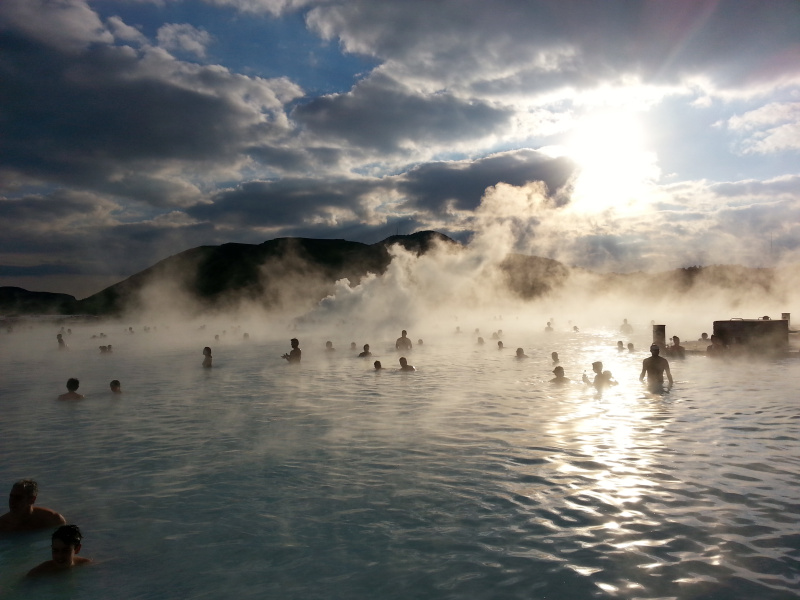Blog: From Arctic Circle 2013-2014, a big drop in the price of oil

I’ve arrived in Iceland for the Arctic Circle 2014 assembly.
I expressed some reservations about the conference program yesterday, but it should still be an intriguing event. For one, there are two heavy issues hanging in the air that weren’t last year. First are the tensions between Russia and the West, which now threaten Arctic cooperation. Second is the price of oil. Last year, the price of Brent crude oil sat at $115 per barrel on the first day of the conference. This year, it will sit around $85 per barrel, representing a 26% drop.
The drop in oil prices spells big trouble for all sorts of countries and states around the world, as the Economist reports. Russia will inevitably face issues with balancing its budget, but so will Alaska. As Brad Keithley writes on his blog on Alaska oil and gas, the state’s budget would only break even at $117/barrel, while the current state budget, which is already taking on a deficit, is assuming $105/barrel.
Iceland resides within a bubble within the Arctic, as unlike Norway, Russia, and the U.S./Alaska, it doesn’t have an oil and gas industry. There’s been some exploration of the Dreki Area, lying in the ocean off the country’s northeast. Yet everything is in the very early stages. Hydropower and geothermal energy are still the name of the game. Iceland’s biggest export is aluminum, a product that’s made in smelters powered by the country’s churning glacial streams after being funneled through dams. Sidewalks are heated geothermally, which melts the snow that would otherwise cover them in winter. Geothermal energy even powers the tourist industry: just look at the tourists frolicking yesterday in the Blue Lagoon, spending a minimum of 35 euros for admission to the ethereally steamy hot baths.

Hydropower is controversial in Iceland since it necessitates the destruction and flooding of large swaths of land. It’s even more controversial in densely populated places like China and India, where hundreds of thousands of people must be removed in order to build dams. That’s one reason why this North Atlantic island has instead focused on exporting its geothermal energy technology. Icelandic energy consultants have shared their experiences by working with places in the Global South endowed with geothermal energy, like Kenya. The African country is home to the geothermally active Olkaria Area in the Great Rift Valley. These are the types of North-South dialogues that would be useful to have at Arctic conferences.
Earlier this month, Kenya – the first in Africa to develop its geothermal energy – opened the 140-MW Olkaria IV geothermal power plant. Upon its inaguaration, President Uhuru Kenyatta remarked, “The benefits of stable, clean, green energy radiate to all sectors of our economy.” Of course, geothermal energy has certain disadvantages. But clearly, the same cannot be said of Arctic oil no matter how safely it is developed.
With Brent crude at $85 a barrel, Reuters reports that up to 1 billion barrels of oil might be left in the ground. Norway’s Arctic fields are at risk, as are Scotland’s offshore fields. Standing on even shakier ground is exploration off Greenland, now threatened by the dual problem of parliamentary upheaval and weak oil prices. And in Russia, U.S. export controls are stymying companies from importing the technology they need to extract offshore Arctic resources, although they are not backing down so easily. Rosneft, for instance, has said it will press ahead in the Kara Sea despite ExxonMobil’s forced withdrawal on October 10.
If the Arctic can’t import the technology it needs to extract offshore oil, when possible, northern countries should instead try to export their renewable technologies that will work in other parts of the world. Such an exchange would show that the Arctic is more than a region of exception: it can also be a model for other parts of the world. With that in mind, let’s wait and see how the conversations at Arctic Circle 2014 turn out.
This post first appeared on Cryopolitics, an Arctic News and Analysis blog.
Related stories from around the North:
Canada: Canada’s Northwest Territories hosts mining conference, CBC News
Finland: Lapland to host Finland’s biggest mine, Yle News
Greenland: Greenland’s political crisis concerns locals and foreign investors alike, Blog by Mia Bennett
Iceland: The Arctic Circle – Denizen of the North, make way for corporate development, Blog by Mia Bennett
Norway: Why Barents oil is becoming unprofitable, Barents Observer
Russia: Disappointing result in Rosneft’s first Norwegian well, Barents Observer
Sweden: Northland halts operations at mine in Arctic Sweden, Radio Sweden
United States: Is Alaska getting its fair share from mining?, Alaska Dispatch





very nice article
very informative well cost estimates